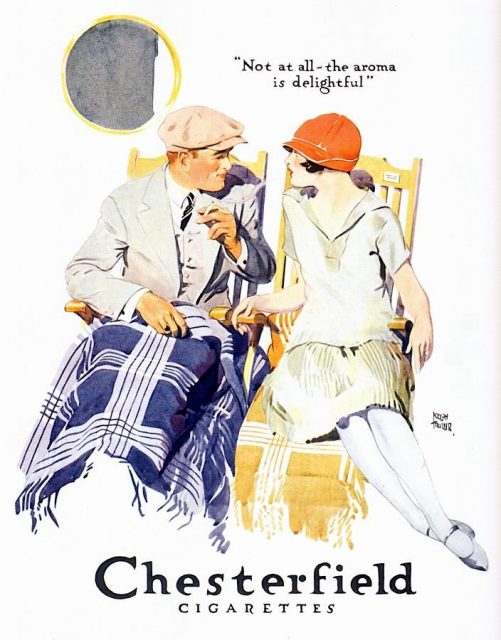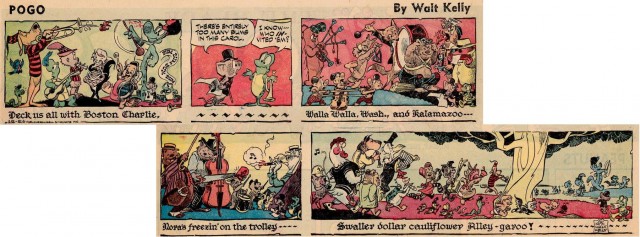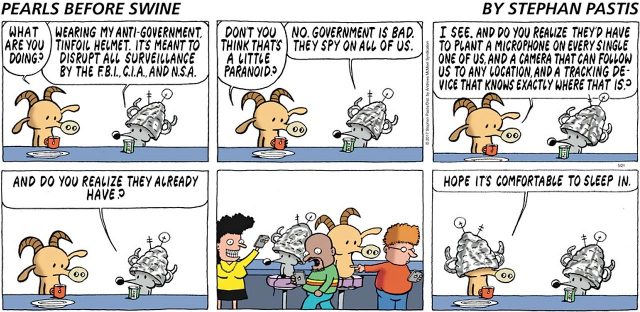Nicolas Slonimsky’s Lexicon of Musical Invective, a compendium of harshly negative reviews of composers from Beethoven to Varèse, is fun to browse. Years ago I based a little name-that-composer quiz on entries in the book. That quiz is long gone, along with the rest of my first weblog, so I’ve compiled a new one. See if you can identify the composers and works from the following excerpts. In a few cases, the critic speaking is also noteworthy.
I’ll post the answers sometime next week.
1. Crashing Siberias, volcano hell, Krakatoa, sea-bottom crawlers.
Composer, composition
2. ____ was abominable. Not a trace of coherent melodies. It would kill a cat and would turn rocks into scrambled eggs from fear of these hideous discords.
Composer, composition, critic
3. It is mathematical music evolved from an unimaginative brain … How it ever came to be known as The Tenth Symphony is a mystery to us.
Composer, composition
4. The overabundance of dissonances and the incompetence in handling vocal parts in ____ reach the point where the listener can not be sure of the composer’s intentions and is unable to distinguish intentional wrong notes from the wrong notes of the performers.
Composer, composition
5. The ____ is filthy and vile. It suggests Chinese orchestral performances as described by enterprising and self-sacrificing travelers. This may be a specimen of the School of the Future for aught I know. If it is, the future will throw the works of Haydn, Mozart and Beethoven into the rubbish bin.
Composer, composition
6. If the reader were so rash as to purchase any of ____’s compositions, he would find that they each and all consist of unmeaning bunches of notes, apparently representing the composer promenading the keyboard in his boots. Some can be played better with the elbows, other with the flat of the hand. None requires fingers to perform nor ears to listen to.
Composer
7. ____ sometimes sounds like a plague of insects in the Amazon valley, sometimes like a miniature of the Day of Judgment … and for a change goes lachrymose.
Composer, composition
8. It must be admitted that to the larger part of our public, ____ is still an incomprehensible terror.
Composer
9. If it were possible to imagine His Satanic Majesty writing an opera, ____ would be the sort of work he might be expected to turn out. After hearing it, we seem to have been assisting at some unholy rites, weirdly fascinating, but painful.
Composer, composition
10. As a kind of drug, no doubt ____’s music has a certain significance, but it is wholly superfluous. We already have cocaine, morphine, hashish, heroin, anhalonium, and innumerable similar productions, to say nothing of alcohol. Surely that is enough. On the other hand, we have only one music. Why must we degrade an art into a spiritual narcotic? Why is it more artistic to use eight horns and five trumpets than to use eight brandies and five double whiskies?
Composer
11. Cunning must be the coinnoiseur, indeed, who, while listening to his music, can form the slightest idea when wrong notes are played — its difficulties to the eye being doubled by the composer’s eccentricity of notation.
Composer
12. To hear a whole program of ____’s works is like watching some midget or pygmy doing clever, but very small, things within a limited scope. Moreover, the almost reptilian cold-bloodedness, which one suspects of having been consciously cultivated, of most of ____’s music is almost repulsive when heard in bulk; even its beauties are like the markings on snakes and lizards.
Composer
13. ____ always sounds to me like the upsetting of bags of nails, with here and there an also dropped hammer.
Composer, critic
14. ____’s symphonic poem ____ is not just filled with wrong notes, in the sense of Strauss’s Don Quixote; it is a fifty-minute-long protracted wrong note. This is to be take literally. What else may hide behind these cacaphonies is quite impossible to find out.
Composer, composition
15. The ____ has pretty sonority, but one does not find in it the least musical idea, properly speaking; it resembles a piece of music as the palette used by an artist in his work resembles a picture. ____ did not create a style; he cultivated an absence of style, logic, and common sense.
Composer, composition, critic
16. There is only one thing for a man like ____ to do if he desires to escape oblivion, and that is to plunge into the grossest materialism in music and seek to puzzle or shock you, because he cannot touch your heart.
Composer
17. ____ had not much to say in his Fifth Symphony and occupied a wondrous time in saying it. His manner is ponderous, his matter imponderable.
Composer
18. … I shall hot criticize this music; quite to the contrary, I will say that this is wonderful barbaric music, the best barbaric music in the world. But when I am asked whether this music gives me pleasure or an artistic satisfaction, whether it makes a deep impression, I must categorically say: “No!”
Composer, composition
19. The Paleozoic Crawl, turned into tone with all the resources of the modern orchestra, clamored for attention at the Philadelphia Orchestra concert when ____ was given its first airing on this side of the vast Atlantic. It was the primitive run riot, almost formless and without definite tonality, save for insistently beating rhythms that made the tom-tom melodies of the gentle Congo tribes seem super-sophisticated in comparison … Without description or program, the work might have suggested a New Year’s Eve rally of moonshine addicts and the simple pastimes of early youth and maidens, circumspectly attired in a fig leaf apiece.
Composer, composition
20. The ____ threads all the foul ditches and sewers of human despair; it is as unclean as music well can be.
Composer, composition
21. I can compare ____ by ____ to nothing but the caperings and gibberings of a big baboon, over-excited by a dose of alcoholic stimulus.
Composer, composition
22. … if the crude expression be permissible, I should say that what was at the back of ____’s mind was an alarm of fire at the Zoo, with the beasts and birds all making appropriate noises — the lion roaring, the hyena howling, the monkeys chattering, the parrots squealing, with the curses of the distracted attendants cutting through them all.
Composer, composition
23. Again I see his curious asymmetrical face, the pointed fawn ears, the projecting cheek bones — the man is a wraith from the East; his music was heard long ago in the hill temples of Borneo; was made as a symphony to welcome the head-hunters with their ghastly spoils of war!
Composer
24. ____’s violin concerto sounds, in its brutal genius, in its abolition of all formal limits, like a rhapsody of nihilism.
Composer
25. (the amoeba weeps)
Composer
Update: The answers are here.




